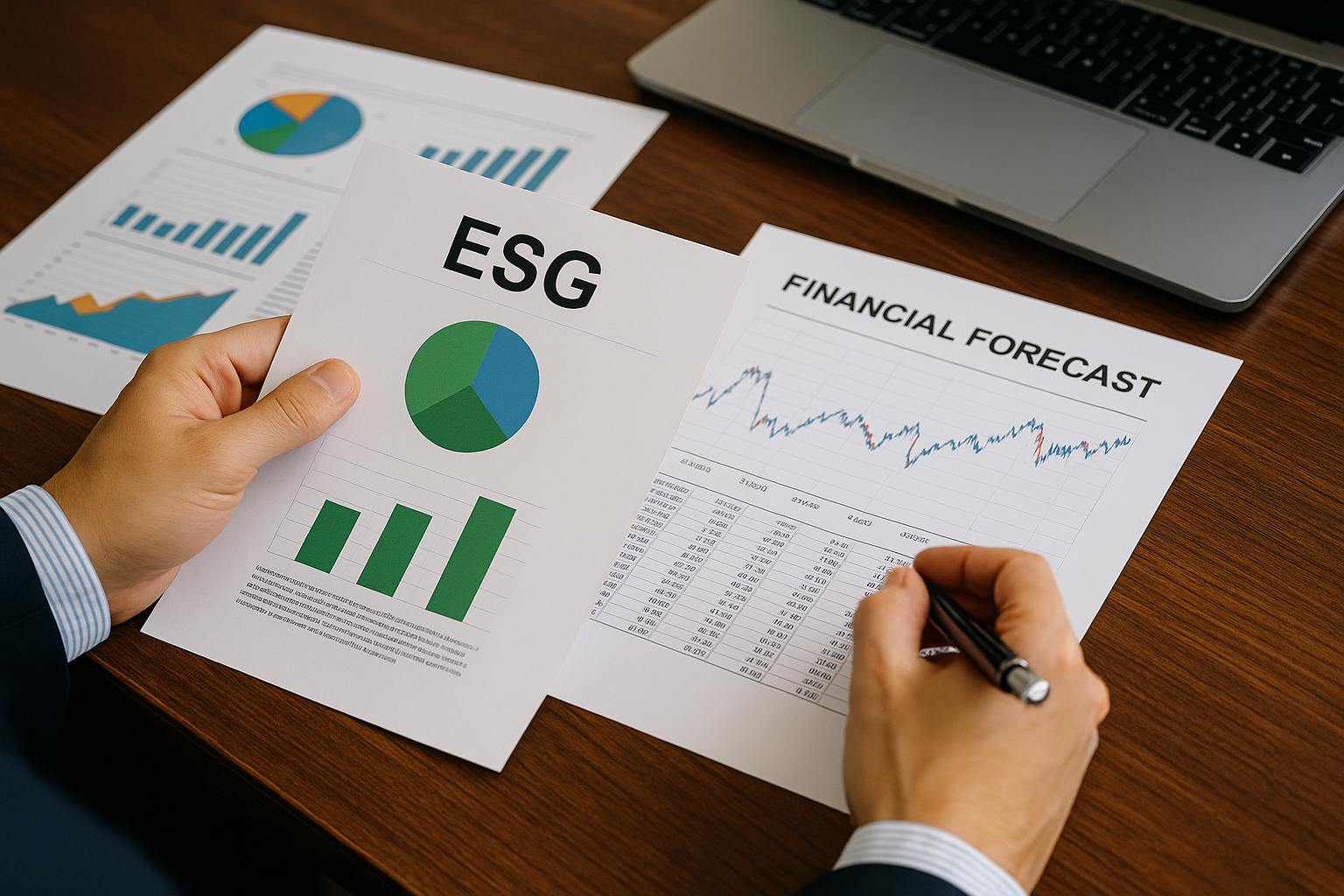High ESG scores don’t guarantee more accurate financial forecasts
The results show that high ESG scores do not consistently enhance predictability. Across widely used error metrics, such as mean absolute error, root mean squared error, and R-squared, differences between high- and low-ESG firms were negligible. Statistical tests confirmed that the variations were not significant, meaning ESG performance alone does not provide a reliable advantage in forecasting accuracy.

The idea that strong environmental, social, and governance (ESG) performance makes companies more predictable in financial markets is increasingly popular among investors and policymakers. But a new international study suggests this assumption may be overstated. In a new study published in the International Journal of Financial Studies, researchers examine the relationship between ESG scores and financial forecast predictability using machine learning models, finding little evidence that high ESG ratings improve accuracy.
The research, titled Estimating the Impact of ESG on Financial Forecast Predictability Using Machine Learning Models, analyzes more than 2,500 companies across 98 countries between 2018 and 2024, testing whether ESG performance influences the ability of forecasting models to produce reliable predictions.
Do ESG scores improve financial forecasts?
The study’s central question is whether companies with high ESG scores are easier to forecast than those with lower scores. To test this, the authors divided firms into two groups, high-ESG and low-ESG, based on the median ESG score in the sample. Forecasts were generated using a range of models, including ARIMA, Elastic Net, K-Nearest Neighbors, Support Vector Regression, Random Forest, and XGBoost.
The results show that high ESG scores do not consistently enhance predictability. Across widely used error metrics, such as mean absolute error, root mean squared error, and R-squared, differences between high- and low-ESG firms were negligible. Statistical tests confirmed that the variations were not significant, meaning ESG performance alone does not provide a reliable advantage in forecasting accuracy.
The findings challenge a common assumption in financial analysis: that integrating ESG data into models automatically reduces uncertainty in long-term investment scenarios. While ESG is often highlighted as a marker of corporate resilience and governance quality, the evidence indicates that it does not necessarily translate into greater predictability in financial outcomes.
Are there sector-specific differences?
Although the overall findings suggest no significant predictive advantage, the study did identify one exception. In the Business Services sector, high-ESG firms showed marginally better predictability compared with their low-ESG counterparts. However, the authors caution that this improvement was not observed consistently across other industries and should not be generalized as a universal trend.
This sector-specific result raises important questions about how ESG may interact differently across industries. Business services, which often involve reputational capital, client relationships, and regulatory compliance, may benefit more directly from strong ESG practices compared with sectors where external shocks or commodity cycles dominate.
Nevertheless, the study emphasizes that isolated improvements are not enough to support the broad claim that ESG enhances forecast accuracy. Investors should be cautious in assuming that high ESG scores automatically improve the reliability of long-term financial projections.
What do the results mean for investors and policymakers?
The implications of this research extend beyond academic debates to the strategies of investors, asset managers, and regulators. The findings suggest that ESG scores should be treated as complementary rather than deterministic in financial modeling. While ESG remains valuable for understanding corporate responsibility and long-term sustainability risks, it should not be relied upon as a standalone predictor of financial performance.
The authors also highlight methodological insights. Traditional statistical models such as ARIMA outperformed more advanced machine learning techniques like long short-term memory (LSTM) and gated recurrent units (GRU) in long-term forecasting. ARIMA’s strength lies in its ability to handle exogenous variables, making it better suited for integrating ESG data under the conditions tested. Tree-based models such as XGBoost also performed well but did not consistently surpass ARIMA.
For policymakers, the study underscores the need for greater standardization of ESG metrics. Current ESG ratings often vary by provider and lack global consistency, reducing their reliability for predictive modeling. Without harmonized standards, the ability of ESG data to improve forecasts will remain limited.
The authors recommend that future research incorporate a broader set of variables beyond ESG alone, including macroeconomic indicators, company financials, and sentiment analysis derived from artificial intelligence tools. Combining these factors may offer a more comprehensive approach to predicting financial outcomes in a volatile global economy.
- FIRST PUBLISHED IN:
- Devdiscourse










